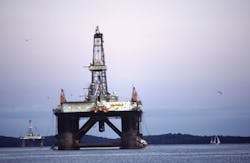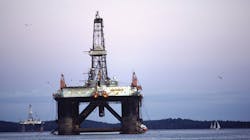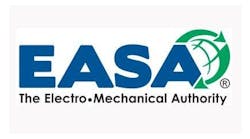The Canadian government is introducing a new cap on liabilities for companies that want to drill for oil in the Atlantic Ocean and the Arctic. The changes were announced by Canada's natural resources minister, Joe Oliver, who stated that the cap will be raised to $1 billion, up from the previous limit of $30 million for oils spills in the Atlantic and $40 million in the Arctic, the Vancouver Sun reported.
The reforms come at a time when several large companies have expressed interest in starting or expanding operations to drill in Canadian offshore areas. These include BP, Royal Dutch Shell, Imperial Oil and the Canadian division of Chevron. Investments are predicted to increase further, following a recent discovery of three large and prospective oil fields in the Labrador Sea.
According to Oliver, operators will have to cover all the expenses in the event where spills are caused by negligence or when companies are found to have been at fault in a spill. A liability cap will not be introduced in such cases, he explained. However, there must be a higher limit to ensure that there are no issues regarding responsibility. In addition, for the first time companies will have to demonstrate to regulators their financial capacity to cover $1 billion in cleanup costs.
In recent years, the problem of who covers the expenses in the event of a disaster has become more pressing as companies have ramped up their exploration efforts in both the Atlantic Ocean and in the Beaufort Sea. Businesses engaged in oil sands production have also faced similar concerns that have prevented them from pushing forward plans to connect Alberta to the country's west coast by pipeline.
RELATED: Questerre Energy announces results from resource evaluation
Environmental groups have claimed that, despite the liability cap being raised, taxpayers may still end up paying significant amounts of money to clean up spills. They noted that BP's Gulf of Mexico spill cost over $40 billion to clean.
Pierre Sadik, manager of legislative affairs for EcoJustice, an environmental advocacy group, commented that proving fault or negligence in an oil spill can be very difficult, which would make it equally hard to collect compensation. At the same time, a spill in Canadian waters could be extremely damaging and expensive to take care of, as conditions there are extremely harsh. Furthermore, operations are very remote and getting the right equipment for a cleanup would be very expensive and technology is often not readily available, as it was the case with BP in 2009 when it was trying to take care of the Macondo blowout.
The industry, on the other hand, has been quite cautious in its comments regarding the new cap. Pius Rolheiser, spokesperson for Imperial, told the Vancouver Post that it was too early to draw conclusions and added that the company was still reviewing various aspects of potential operations in the Beaufort Sea. He explained that there were "financial, operational and regulatory complexities" associated with a review of Arctic drilling conducted by Canada's National Energy Board.



